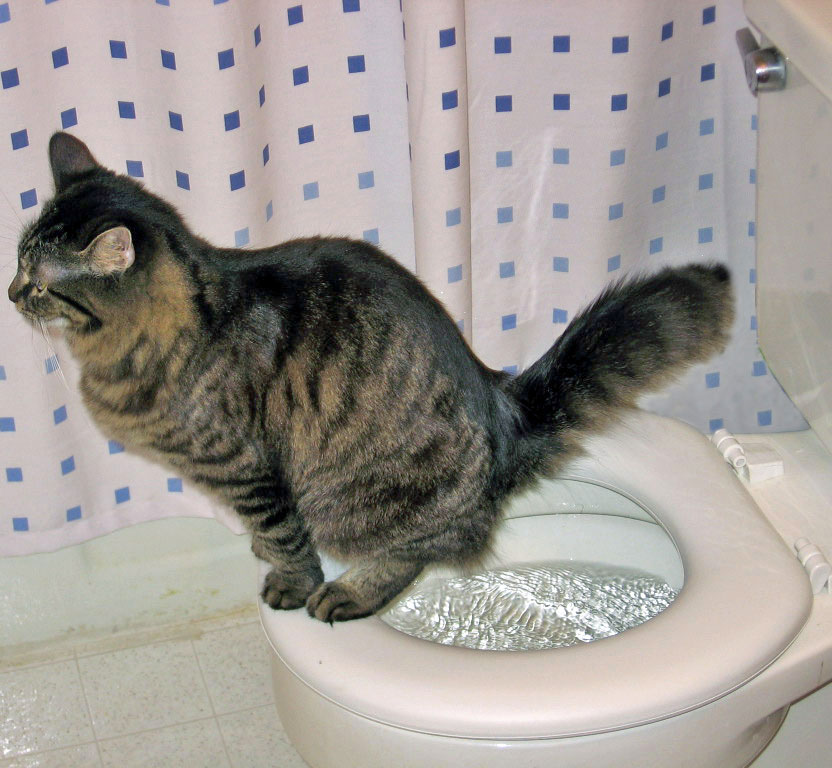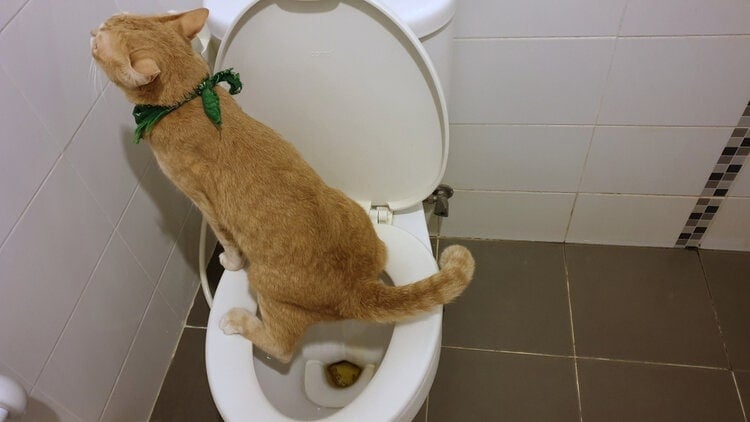Prevent Bathroom Emergencies: Never Flush Cat Poop Down Your Toilet - Professional Advice
Prevent Bathroom Emergencies: Never Flush Cat Poop Down Your Toilet - Professional Advice
Blog Article
Just how do you really feel with regards to Can You Flush Cat Poo or Litter Down the Toilet??

Introduction
As feline owners, it's important to be mindful of exactly how we take care of our feline pals' waste. While it might appear convenient to flush feline poop down the toilet, this method can have damaging effects for both the setting and human health.
Alternatives to Flushing
The good news is, there are more secure and much more accountable methods to take care of cat poop. Consider the complying with choices:
1. Scoop and Dispose in Trash
The most typical method of dealing with pet cat poop is to scoop it into an eco-friendly bag and toss it in the trash. Make sure to use a devoted trash scoop and throw away the waste immediately.
2. Use Biodegradable Litter
Go with naturally degradable pet cat litter made from products such as corn or wheat. These litters are environmentally friendly and can be securely dealt with in the garbage.
3. Hide in the Yard
If you have a yard, consider burying feline waste in a marked location away from vegetable gardens and water resources. Make sure to dig deep adequate to stop contamination of groundwater.
4. Mount a Pet Waste Disposal System
Buy a pet waste disposal system specifically designed for cat waste. These systems make use of enzymes to break down the waste, reducing smell and ecological effect.
Health and wellness Risks
In addition to ecological problems, purging feline waste can also pose health and wellness threats to human beings. Cat feces may consist of Toxoplasma gondii, a parasite that can create toxoplasmosis-- a potentially extreme ailment, specifically for expectant females and people with weakened body immune systems.
Environmental Impact
Purging cat poop introduces hazardous virus and bloodsuckers into the supply of water, presenting a significant risk to marine communities. These contaminants can negatively impact marine life and compromise water top quality.
Final thought
Liable pet possession expands past supplying food and sanctuary-- it additionally includes proper waste monitoring. By refraining from purging pet cat poop down the bathroom and selecting different disposal methods, we can minimize our environmental impact and safeguard human health.
Why Can’t I Flush Cat Poop?
It Spreads a Parasite
Cats are frequently infected with a parasite called toxoplasma gondii. The parasite causes an infection called toxoplasmosis. It is usually harmless to cats. The parasite only uses cat poop as a host for its eggs. Otherwise, the cat’s immune system usually keeps the infection at low enough levels to maintain its own health. But it does not stop the develop of eggs. These eggs are tiny and surprisingly tough. They may survive for a year before they begin to grow. But that’s the problem.
Our wastewater system is not designed to deal with toxoplasmosis eggs. Instead, most eggs will flush from your toilet into sewers and wastewater management plants. After the sewage is treated for many other harmful things in it, it is typically released into local rivers, lakes, or oceans. Here, the toxoplasmosis eggs can find new hosts, including starfish, crabs, otters, and many other wildlife. For many, this is a significant risk to their health. Toxoplasmosis can also end up infecting water sources that are important for agriculture, which means our deer, pigs, and sheep can get infected too.
Is There Risk to Humans?
There can be a risk to human life from flushing cat poop down the toilet. If you do so, the parasites from your cat’s poop can end up in shellfish, game animals, or livestock. If this meat is then served raw or undercooked, the people who eat it can get sick.
In fact, according to the CDC, 40 million people in the United States are infected with toxoplasma gondii. They get it from exposure to infected seafood, or from some kind of cat poop contamination, like drinking from a stream that is contaminated or touching anything that has come into contact with cat poop. That includes just cleaning a cat litter box.
Most people who get infected with these parasites will not develop any symptoms. However, for pregnant women or for those with compromised immune systems, the parasite can cause severe health problems.
How to Handle Cat Poop
The best way to handle cat poop is actually to clean the box more often. The eggs that the parasite sheds will not become active until one to five days after the cat poops. That means that if you clean daily, you’re much less likely to come into direct contact with infectious eggs.
That said, always dispose of cat poop in the garbage and not down the toilet. Wash your hands before and after you clean the litter box, and bring the bag of poop right outside to your garbage bins.
https://trenchlesssolutionsusa.com/why-cant-i-flush-cat-poop/

I recently found that entry about How to Dispose of Cat Poop and Litter Without Plastic Bags while doing a lookup on the web. Sharing is nice. Helping people is fun. Thanks so much for going through it.
Visit Page Report this page